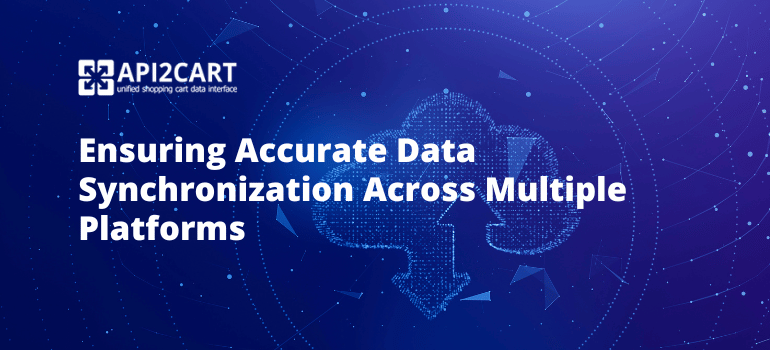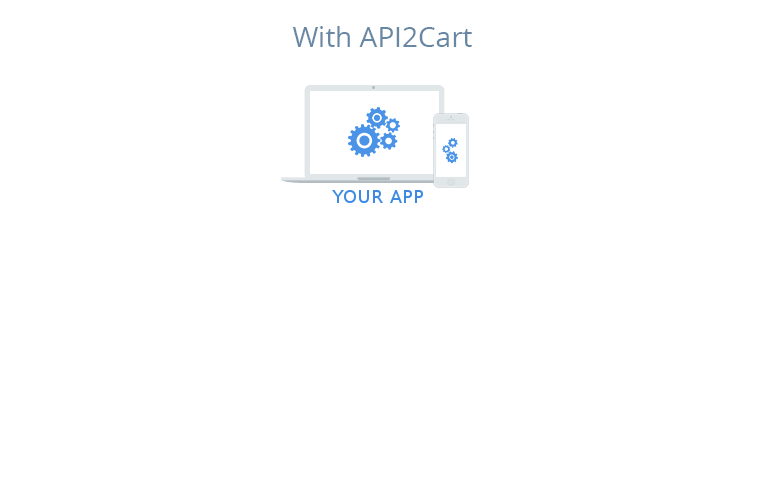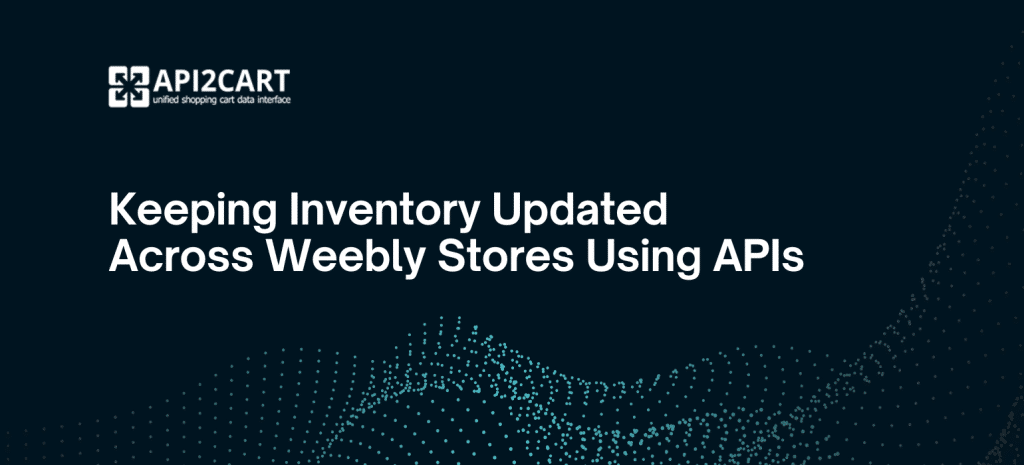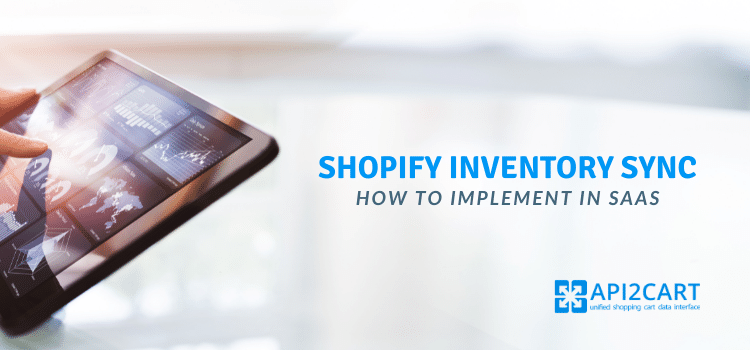
Seamless data synchronization between multiple systems and platforms is essential for smooth operations. From managing inventory and processing orders to updating product details, accurate and consistent data flow prevents costly errors and enhances customer satisfaction. For eCommerce software vendors—including multi-channel software providers, inventory management systems, and warehouse management platforms—achieving cross-platform sync is both a crucial requirement and a challenging task.
At its core, cross-platform sync ensures that vital information, such as product availability, customer details, and order statuses, remains uniform across all connected sales channels and backend systems. This article explores the importance of accurate synchronization, the challenges involved, and how API2Cart simplifies this process for eCommerce software vendors.
The Importance of Cross-Platform Sync in eCommerce Operations
Accurate cross-platform sync ensures that store data remains consistent across multiple sales channels. When synchronization fails, it can lead to significant issues, including:
Overselling and Stockouts: Without real-time synchronization, inventory levels may not update correctly, leading to overselling of out-of-stock products or missed sales opportunities.
Inaccurate Product Information: Discrepancies in product descriptions, pricing, or availability across platforms can damage customer trust and reduce sales.
Missed Orders or Delayed Order Fulfillment: Synchronization failures can cause orders to be overlooked, processed incorrectly, or delayed, frustrating customers and leading to negative reviews.
Fragmented Customer Experiences: Inconsistent data across platforms can create a disjointed shopping experience, reducing customer loyalty and retention.
For eCommerce software vendors, maintaining reliable cross-platform sync directly impacts customer satisfaction and retention. Vendors must ensure that their systems can handle high volumes of data while providing real-time updates across platforms.

Key Challenges in Achieving Cross-Platform Sync
While cross-platform sync is essential, it comes with its own set of challenges:
Data Format Differences: Different platforms use unique data structures and APIs, requiring complex mapping and transformation processes.
Real-Time Data Processing: Synchronization must happen in real-time to avoid discrepancies, especially during peak shopping periods.
Scalability: As businesses grow, synchronization processes must be able to scale without losing efficiency.
API Rate Limits: Many platforms enforce rate limits, impacting data synchronization speed.
Error Handling: Synchronization errors, such as network failures or API downtime, must be efficiently managed to avoid data loss.
Platform-Specific Constraints: Each eCommerce platform has its own limitations and rules for data exchange, which must be addressed during integration.
Security Concerns: Data breaches or mishandling during synchronization can have severe consequences, requiring robust encryption and security protocols.
Time-Consuming Integrations: Developing and maintaining integrations with eCommerce platforms is a lengthy process. On average, building just one integration can take up to 8 weeks. Scaling this effort across multiple platforms significantly increases time investment.
High Integration Costs: Each integration costs approximately $6,000 - $7,000 to develop and maintain. Beyond this, creating the necessary infrastructure to support these integrations in-house adds to the financial burden. The annual expenditure can become substantial when multiplied by the number of required integrations.
How API2Cart Simplifies Cross-Platform Sync
API2Cart offers a comprehensive solution for eCommerce software vendors, providing a unified API that connects to over 40 eCommerce platforms, including Shopify, Magento, WooCommerce, and BigCommerce. This simplifies the complex task of cross-platform sync and allows vendors to focus on their core functionalities.
Key Features of API2Cart for Cross-Platform Sync:
Unified API Integration: API2Cart accelerates integration processes, allowing vendors to connect with multiple platforms through one API.
Real-Time Data Updates: Ensure that product, order, and inventory data are updated instantly across all connected systems.
Secure and Reliable: API2Cart prioritizes data security, protecting sensitive information during synchronization.
Extensive Documentation: API2Cart offers detailed documentation to streamline implementation and troubleshooting processes.
Reduced Costs: Minimize the expenses associated with building and maintaining multiple platform-specific integrations.
By leveraging API2Cart, vendors can achieve seamless cross-platform sync while reducing development time, operational costs, and integration complexities.

Which B2B SaaS Systems Need Cross-Platform Sync?
Cross-platform sync plays a critical role in enabling B2B SaaS systems to integrate with various shopping carts and marketplaces. Below are key systems that heavily rely on synchronized data and the functions they enable.
PIM Systems
PIM systems manage product-related data, including images, attributes, and specifications, to ensure consistency across sales channels. Cross-platform sync allows these systems to:
Import product lists, including prices, images, descriptions, and categories
Update product details across multiple platforms simultaneously
Send accurate product information to online store listings
Mobile App Builders
Mobile app builder software transforms eCommerce websites into fully functional mobile apps. Synchronization of store data, including orders, product details, and customer information, is vital. Integration enables:
Real-time synchronization of product lists, including prices and images
Instant updates of customer and order information using webhooks
Seamless mobile shopping experiences aligned with the web platform
POS Systems
POS systems handle order processing, inventory tracking, and sales reporting. Cross-platform sync ensures smooth operation by enabling the following:
Synchronization of inventory levels across multiple sales channels
Real-time order and customer data updates
Centralized reporting and analytics
Inventory Management Systems
For businesses operating across multiple platforms, managing inventory is a challenging task. Cross-platform sync ensures:
Real-time stock level updates across platforms
Prevention of overselling or stockouts
Streamlined order fulfillment processes
Multi-Channel Software
These systems help businesses sell across various platforms simultaneously. Cross-platform sync allows them to:
Centralize order and inventory management
Update product information uniformly across channels
Ensure seamless data flow between marketplaces and backend systems
While cross-platform sync is essential for these systems, integrating them with eCommerce platforms often presents technical challenges. Choosing reliable integration solutions can help SaaS providers overcome these obstacles and deliver seamless experiences to their customers.
How API2Cart Handles Common Synchronization Scenarios
Synchronization across multiple platforms involves handling diverse types of data with precision and consistency. Below are key synchronization scenarios that API2Cart addresses effectively:
Product Data Synchronization: API2Cart allows vendors to add, update, and remove product details, including descriptions, images, and pricing, ensuring consistency across platforms.
Order Management: Seamlessly retrieve, add, and update order details, statuses, and shipment tracking in real-time, reducing errors in fulfillment.
Customer Data Management: Synchronize customer information, including profiles, contact details, and purchase histories, for a consistent experience across channels.
Inventory Updates: Prevent overselling by accurately synchronizing stock levels across all connected platforms, even during high-demand periods.
Category Management: Efficiently update and manage product categories and subcategories across platforms, maintaining an organized and accurate product catalog.
With these capabilities, API2Cart ensures that every aspect of synchronization is handled efficiently, reducing errors and improving operational workflows.
Final Thoughts
For eCommerce software vendors, achieving efficient and reliable cross-platform sync is crucial for success. The ability to synchronize product, order, and customer data across multiple platforms ensures operational efficiency, accurate reporting, and improved customer satisfaction.
With API2Cart, vendors gain access to a robust solution designed to address the challenges of synchronization across diverse platforms. By leveraging API2Cart's unified API, vendors can focus on delivering exceptional value to their clients without being burdened by integration complexities.
If you're ready to enhance your cross-platform sync capabilities, start your journey with API2Cart today. Explore the seamless possibilities and ensure your software remains ahead in the ever-evolving eCommerce ecosystem.



